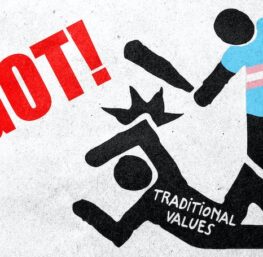Acton Institute | Samuel Gregg | Sep. 9, 2009
Marxism, we’re often told, is dead. While Communism as a system of authoritarian power still exists in countries like China, Marxism’s contemporary hold over people’s minds, many claim, is nothing compared to its glory days between the Bolshevik seizure of power in Russia in October 1917 and the Berlin Wall’s fall twenty years ago.
In many respects, such observations are true. But in other senses, they are not. We need only look at Western Europe—the place where Marxist thought first emerged and took root. One trivial, albeit disturbing sign is many young West Europeans’ willingness to wear t-shirts emblazoned with the Communist hammer and sickle or Che Guevara images. If you want confirmation of this, just take a stroll through downtown Amsterdam, Stockholm, or Rome.
No doubt, in many cases the t-shirt images are simply reflections of youthful rebelliousness. But it’s difficult to refrain from asking wearers of such clothing whether they also possess a t-shirt inscribed with the Nazi swastika. They would surely be deeply offended at such a suggestion. But their willingness to parade the hammer and sickle reflects either historical ignorance or a failure to accept that it is as much a symbol of terroristic criminal regimes as the swastika: just ask any survivors of Stalin’s Gulag, Vietnam’s “re-education” camps, or the Khmer Rouge’s killing fields.
Then there is the persistent grip of Marxist-inspired mythology on Western Europe’s historical imagination. A good example is Karl Marx’s presentation of nineteenth-century capitalism as a period in which a small group became wealthy and millions were impoverished. This remains an article of faith for the European left and some on the European right.
No doubt, there was considerable upheaval as entire societies transformed from agricultural arrangements to heavy industry. But as the Oxford economic historian Max Hartwell proved conclusively in his famous debates with the Marxist scholar Eric Hobsbawm, on every measurable variable of the standard of living, the quality of life for the overwhelming majority of people improved dramatically because of industrial capitalism.
So why are Marxist myths and symbols implicitly accepted so casually by many West Europeans who would never consider themselves Communists? One obvious reason is that Western European nations were never subject to Communist regimes. Hence it was easier to retain romantic notions about Marxism and ignore or rationalize the brutal reality on the other side of the Iron Curtain.
Then there is the fact that the continental European left was far more influenced by Marxism than, for example, Anglo-American center-left movements. Germany’s Social Democrat party, for example, only formally renounced Marxism as a source of ideas in 1959.
But perhaps the most significant reason for Marxism’s lingering background influence on much West European opinion is an Italian philosopher who died 72 years ago. If you ever doubt the power of intellectuals, the case of Antonio Gramsci is a useful corrective.
[…]
After 1968, many of Western Europe’s universities underwent a dramatic change for the worse. The professoriate became so monolithically leftist that it makes America’s reliably left-leaning Ivy League universities look like models of diversity. If you walk into most West European academic bookshops, you will find a preponderance of left-inclined work and struggle to find material presenting alternative views. This state of affairs has influenced thousands of West European students passing through these institutions.
. . . more



